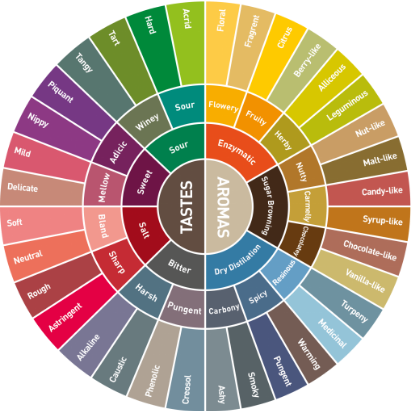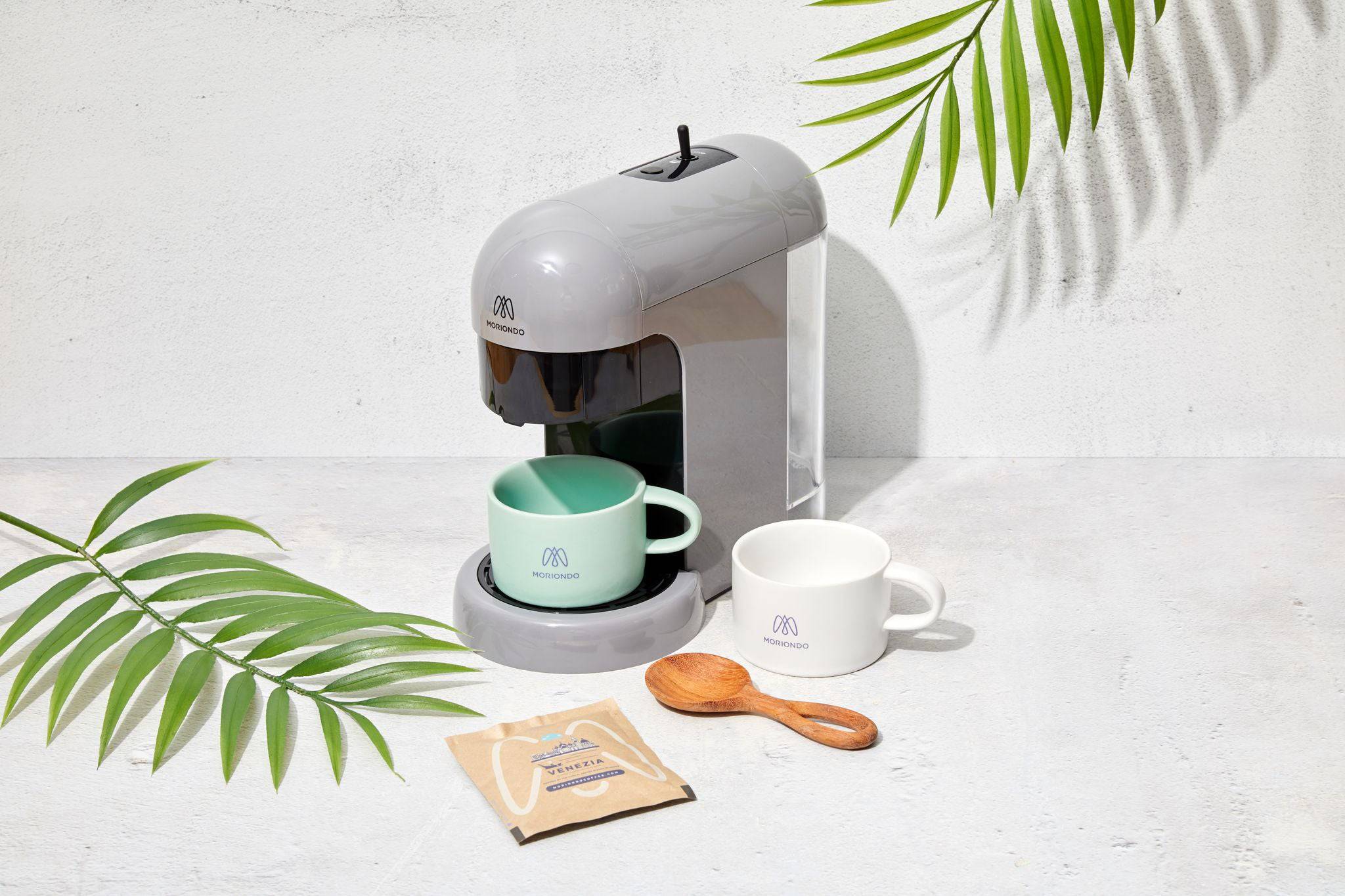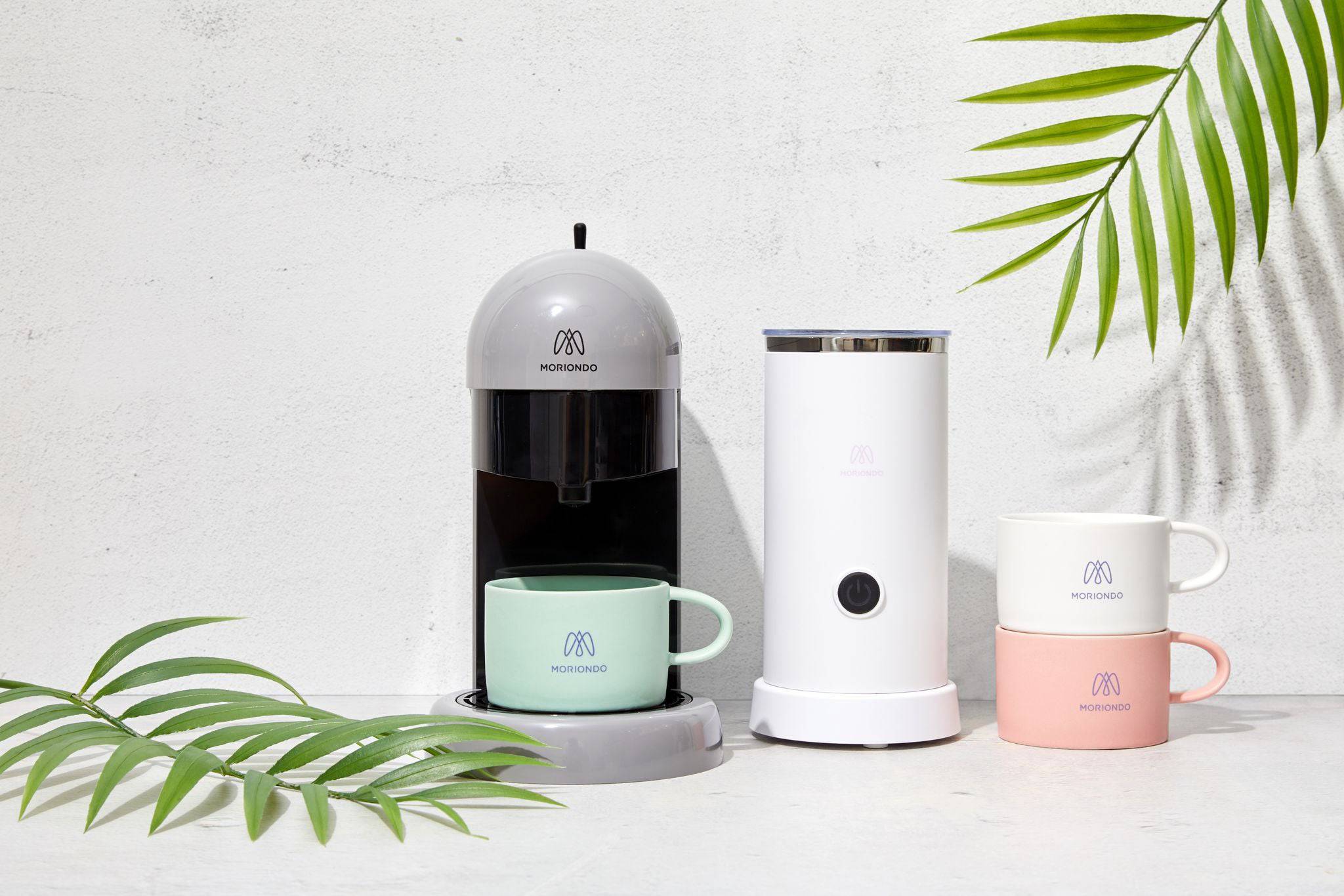Black Tea vs Coffee (Side by Side Comparison)
Table of Contents
- Coffee Plant Origins and Taste
- Black Tea Origin and Taste
- What is Caffeine?
- Black Tea vs Coffee (Side-by-Side Comparison)
- Health Benefits of Coffee
- It has more caffeine
- It contains antioxidants
- It can help reduce the risk of certain diseases
- May promote weight management
- Health Benefits of Black Tea
- Eliminates free radicals
- It may boost heart health
- May support digestive health
- May promote weight loss
- May reduce stress
- The Downside of Tea
- The Downside of Coffee
- So, Is Black Tea Healthier Than Coffee?
Do you prefer coffee or black tea?
It's a question that has been debated for centuries, and with the rise of specialty coffee shops and cafes around the world, it seems like everyone has their own opinion.
But what are the differences between these two popular beverages? Let's take a look at how they compare when it comes to taste, health benefits, caffeine content, and more.
By understanding these key points of comparison, you can decide which one is best suited to your needs.
So grab a cup of either beverage, and let's get started.
Coffee Plant Origins and Taste

Coffee beans are believed to originate in Ethiopia, with the first recorded use of coffee coming from Sufi monasteries in Yemen over 1,000 years ago.
Since then, different types of coffee have grown and developed throughout the world.
Coffee tastes differ based on its variety, growing environment, and roast type. For example, Coffee Arabica provides a softer and sweeter taste than Coffee Robusta and black coffee.
Coffee connoisseurs and coffee drinkers describe Coffee Arabica as having a pleasant complexity of acidic notes along with floral aromas and nutty undertones. In contrast, Coffee Robusta is often described as more bitter or slightly earthy.
The types of coffee available today come in a range of flavor profiles that are satisfying to almost any palate.
Black Tea Origin and Taste

Black tea (tea plant), on the other hand, is believed to originate in China. Its popularity spread quickly throughout Asia and became popular in Europe and the United States by the 18th century.
Black tea's taste is often described as robust, smoky, and earthy, with a hint of sweetness by tea drinkers. It's also known for its rich aroma, which some attribute to its longer oxidation process compared to other types of tea.
Different varieties of black tea can have unique tastes, such as the smoky flavor in Lapsang Souchong or the sweet and spicy taste of Chai tea.
Green tea and other tea types
Although green tea is not as popular as coffee or black tea, it has become increasingly popular in recent years due to its health benefits.
Green tea is made from unoxidized leaves and has a lighter taste compared to black tea.
It also contains significantly less caffeine than coffee, making it a good alternative for those who are sensitive to the effects of caffeine.
Other types of tea, such as white, oolong, and herbal tea, also have their own unique tastes and health benefits.
What is Caffeine?
Caffeine is the active ingredient in both coffee and black tea that gives us a boost of energy.
It's found naturally in these drinks but can also be added to other foods and beverages like energy drinks and chocolate.
Caffeine acts as a stimulant, blocking certain receptors in our brain, which allows us to feel energized and focused. It also increases our heart rate, respiration, and metabolism.
The amount of caffeine in each drink can vary greatly depending on the preparation and ingredients used, so it's important to know how much caffeine is in your beverage before you consume it.
Black Tea vs Coffee (Side-by-Side Comparison)
Health Benefits of Coffee
Coffee comes in different varieties and can be enjoyed in a variety of ways, but the most common way to drink coffee it is as an espresso or brewed coffee.
Coffee has been found to have a variety of health benefits discussed in the literature, and some of the most notable are:
It has more caffeine
Coffee generally has more caffeine than black tea, with a cup of espresso containing around 95 mg compared to 47 mg in a cup of black tea.
Green tea has even less caffeine than black tea, with only around 25 mg per cup. Caffeine can have a variety of effects on our bodies, from increased alertness and focus to improved reaction time.
Therefore, if you're looking for a pick-me-up, coffee might be the better choice.
It contains antioxidants
It's also important to note that coffee contains beneficial antioxidants, which are compounds that can help protect our cells from damage.
Antioxidants can support the body's natural defenses and reduce inflammation, making them a vital part of any diet.
Coffee is one of the best sources of these helpful antioxidants, so for coffee lovers who are looking to increase their intake, coffee is a great choice.
It can help reduce the risk of certain diseases
Studies have also found that regular coffee consumption can help reduce the risk of certain diseases, such as Parkinson's and Alzheimer's.
It can even lower the risk of developing Type 2 diabetes, according to a study published in The New England Journal of Medicine.
Why? Coffee's antioxidants and other compounds, such as chlorogenic acid, may help protect cells from damage and reduce inflammation.
May promote weight management
Lastly, there's some evidence that coffee may help to lose weight. This is likely due to the fact that one cup of coffee can contain up to 100 mg of caffeine, which has been found to help boost metabolism and increase fat burning.
However, it's important to note that in order for coffee to be beneficial for weight loss, it should be consumed in moderation.
Health Benefits of Black Tea
Black tea is made from the leaves of the Camellia sinensis plant. It's often enjoyed as an iced or hot tea and can be found in many different flavors.
Just like coffee, black tea is also said to have a variety of health benefits, including:
Eliminates free radicals
Free radicals are molecules that can damage our cells and increase the risk of developing certain diseases.
Fortunately, black tea is rich in antioxidants like tannins, and catechins, which can help eliminate free radicals by neutralizing them.
Also, the polyphenols found in black tea can help reduce inflammation and repair damaged cells.
It may boost heart health
Black tea contains another group of antioxidants called flavonoids, which can help reduce cholesterol levels and lower the risk of developing heart disease.
In fact, a study published in the journal Food & Function found that drinking three cups of black tea per day can reduce the risk of stroke by 21%.
May support digestive health
Black tea is also said to be beneficial for digestive health. The tannins found in black tea can help reduce bloating, while caffeine may aid digestion by increasing the production of stomach acids.
Additionally, the probiotics found in black tea can help keep your gut healthy and reduce the risk of digestive issues.
May promote weight loss
Just like coffee, black tea may also be beneficial for weight loss. The caffeine found in both coffee and black tea can help boost metabolism and increase fat burning.
Additionally, the polyphenols found in black tea can help reduce appetite and cravings, making it easier to stick to a healthy diet.
May reduce stress
Finally, black tea may help reduce stress. Studies have found that the amino acid L-theanine, which is present in black tea, can promote relaxation and reduce stress levels.
So if you're feeling overwhelmed or anxious, having a cup of black tea might be just the thing to help you relax.
The Downside of Tea
While tea is generally safe for most people to drink, there are some potential side effects to be aware of.
- Inhibits iron absorption: If you drink tea with meals, it can inhibit the absorption of iron. This is because tannins, which are compounds found in black and green tea, bind to iron and prevent it from being absorbed by the body.
- Dehydration: Drinking caffeinated beverages like tea can lead to dehydration if you're not drinking enough water. Therefore, it's important to make sure that you're getting enough fluids throughout the day.
- Low nutrient absorption: Tea can also reduce the absorption of certain nutrients, such as zinc, magnesium, and calcium. To ensure that you're getting enough of these important nutrients, make sure to include plenty of other whole foods in your diet.
The Downside of Coffee
Caffeine sensitivity: Some people may be more sensitive to the effects of caffeine, which can lead to jitters, anxiety, and insomnia.
It's important to be aware of your individual tolerance and adjust your consumption accordingly.
- High blood pressure: Coffee contains caffeine, which can raise blood pressure. If you have high blood pressure, it may be best to limit your caffeine intake or avoid coffee altogether.
- May increase cholesterol: Regular consumption of coffee may increase cholesterol levels, which can lead to an increased risk of heart disease. If you have high cholesterol, it's best to limit your consumption or avoid coffee altogether.
- It's more acidic than tea: Coffee is significantly more acidic than tea, which can be hard on the stomach. If you have a sensitive stomach, it may be best to switch from coffee to tea or limit your intake of both.
So, Is Black Tea Healthier Than Coffee?
It's difficult to say which one is healthier, as both have their own unique benefits and drawbacks. Ultimately, it comes down to your individual preferences and needs.
If you're looking for a source of antioxidants and want to reduce your risk of developing certain diseases, then black tea may be the better option for you.
On the other hand, if you're looking for a quick energy boost, then coffee may be an ideal choice. Ultimately, the decision is up to you.
Regardless of which one you choose, make sure to enjoy it in moderation. Remember to drink plenty of water throughout the day to stay hydrated and balanced.
Please also check with your healthcare provider before making any major changes to your diet or lifestyle.
Good Tasting Coffee: How to Identify Coffee Flavors

In order to appreciate the different types of coffee available, it's important to cultivate an awareness of its unique characteristics. Let's take a look at the way coffee connoisseurs judge different cups of coffee.

Aroma
The scent of a cup of coffee has a direct influence on how we perceive its flavor. As you drink coffee try to notice if the scent is smoky, fruity, earthy, spicy, nutty or grassy.
Acidity
One of the most defining characteristics of a cup of coffee is its acidity. This is the sharp, bright tangy quality of coffee that perks up our senses. Coffee doesn’t necessarily contain just one type of acid, either. It may contain citric acid, malic acid (fruity in flavor) or even quinic acid from stale coffee, which gives us stomach aches.
Body
This is the weight, thickness and texture of coffee in your mouth. The body of different types of coffee falls on a spectrum of light- to full-bodied viscosity (thin to thick).
Flavor
This is where comparisons come in handy and there is some overlap between aroma and flavor. Your coffee might taste bitter, sweet, savory or sour with common comparisons to chocolate, wine or fruit.
Related Posts
















